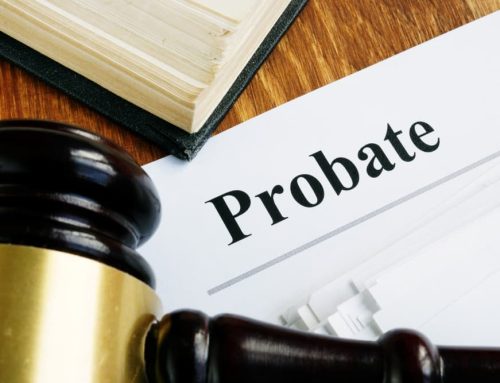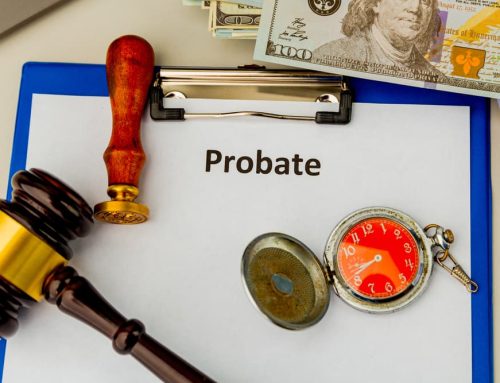What Are the Steps in the Florida Probate Process?
What Are the Steps in the Florida Probate Process?

Probate in Florida is a step-by-step legal process that begins with the death certificate and ends with the final distribution of assets. Each stage involves specific filings, deadlines, and court approvals. A Florida probate attorney helps families move through these steps smoothly, avoiding costly mistakes that can delay the process or create personal liability for the estate’s representative.
Contact The Estate Plan at (305) 735-2689 for experienced legal guidance to help you navigate the probate process with confidence.
Key Takeaways About Steps in the Florida Probate Process
- Florida probate requires personal representatives to follow a strict order of steps, from securing assets and paying creditors to distributing remaining property to beneficiaries.
- Missing deadlines or documentation can expose personal representatives to personal liability and court removal.
- Summary administration provides a faster option for estates under $75,000 or when the decedent passed more than two years ago.
How The Estate Plan Helps with the Florida Probate Process

Our firm manages every probate phase, from initial filings at the Miami-Dade County Courthouse to final distributions. We prepare required documents, meet statutory deadlines, and respond to unexpected complications that arise during administration.
Strategic Planning for Efficient Administration
Each estate presents unique challenges requiring customized approaches. The Estate Plan evaluates your specific situation to determine whether summary or formal administration applies, identify potential complications, and develop strategies for efficient resolution.
We coordinate with accountants, appraisers, and real estate professionals throughout South Florida to handle complex assets. Our established relationships with court personnel and familiarity with local procedures streamline the process significantly.
Opening a Florida Estate in Probate Court
The probate process begins when someone files a petition with the circuit court in the county where the deceased resided. In Miami-Dade County, petitions are filed in the downtown probate division or at designated branch locations.
Filing the Petition for Administration
The petition must include specific information about the deceased, potential heirs, and known assets. Florida Statutes Section 733.202 requires attaching the original will and death certificate to establish the court’s authority.
Courts review petitions to verify jurisdiction and determine appropriate proceedings. If everything appears proper, judges issue orders appointing personal representatives and providing legal authority to act.
How to Secure Estate Assets During Florida Probate
Once appointed, personal representatives must immediately protect estate property from loss or damage. This may include changing property locks, forwarding mail, and notifying financial institutions of the death.
Personal representatives gather important documents and create comprehensive asset lists. Bank statements, property deeds, vehicle titles, and investment records all require collection and review. This information forms the foundation for the formal inventory filed with the court.
Florida Probate Administration and Managing Creditor Claims
After securing assets, personal representatives enter the active administration phase involving creditor notifications, claim evaluations, and ongoing asset management.
Publishing and Serving Notice to Creditors
Florida law requires publishing notice in newspapers to alert unknown creditors about the death and probate proceedings. The notice must run once weekly for two consecutive weeks in newspapers approved by the court.
Known creditors receive direct notice by mail, starting their claim period. Personal representatives must search diligently for creditors by reviewing mail, financial records, and credit reports. Florida Statutes Section 733.2121 establishes a three-month deadline for most creditor claims.
Evaluating and Paying Valid Claims
Personal representatives must carefully evaluate each creditor claim to determine validity and proper payment priority. Florida law sets a strict payment order when an estate’s assets cannot cover all claims:
- Administrative costs including attorney fees and personal representative compensation
- Funeral and burial expenses up to reasonable amounts
- Debts with federal priority including taxes
- Medical expenses from the final 60 days of illness
Invalid or questionable claims require formal objection within specific timeframes. Personal representatives who pay improper claims or violate payment priorities face potential personal liability.
Florida Probate Asset Inventory and Accounting Rules
Florida probate law mandates detailed record-keeping throughout administration to protect beneficiaries and provide court oversight.
How to File a Florida Estate Inventory

Accurate valuations require professional appraisals for real estate, businesses, and valuable personal property. Miami’s diverse property market, ranging from Brickell condos to Homestead farmland, demands appraisers who are familiar with local values.
Ongoing Accounting Obligations
Personal representatives maintain detailed records of every financial transaction during administration. Income received, expenses paid, and asset sales all require documentation for eventual accounting to beneficiaries.
Courts may require interim accountings for lengthy administrations or when beneficiaries request updates. Final accountings must balance perfectly, showing beginning assets, all transactions, and proposed distributions.
Florida Probate Tax Obligations and Filing Requirements
Estate administration includes managing various tax responsibilities that personal representatives must address timely.
Final Income and Estate Tax Returns
Personal representatives file the decedent’s final personal income tax return for the year of death. Estates generating income during administration may require separate estate income tax returns.
Large estates might owe federal estate taxes, requiring complex valuations and potential payment arrangements. The IRS offers detailed guidance on estate tax obligations and filing procedures.
Final Distribution and Closing a Florida Estate
After satisfying all creditors and tax obligations, personal representatives distribute remaining assets to beneficiaries according to will provisions or intestacy laws.
Preparing for Asset Distribution
Before distributing assets, personal representatives obtain court approval through petitions for discharge. These documents detail all administration activities and propose final distributions to beneficiaries.
Beneficiaries usually sign receipts confirming their distributions and releasing the personal representative from further liability. These releases protect against future claims about administration handling.
How to Close a Florida Probate Estate
Final closure requires filing various documents proving completed administration. Courts review final accountings, tax clearances, and beneficiary receipts before issuing discharge orders.
Once discharged, personal representatives have no further authority or responsibility for estate matters. The probate process officially ends, completing the legal transfer of assets to beneficiaries.
FAQs for Florida Probate Attorneys
Can you handle probate without an attorney in Florida?
Florida law only lets personal representatives handle probate without a lawyer in limited cases, such as in summary administration or when the personal representative is also the only beneficiary. Most formal probate cases require an attorney to file paperwork and manage court procedures. Because probate can be complicated and mistakes in notifying creditors or dividing assets can lead to legal problems, it is strongly advised to have an attorney’s help.
What happens if you don’t probate an estate in Florida?
Failing to probate an estate prevents legal asset transfers, leaving property titled in the deceased’s name indefinitely. Creditors may force probate proceedings to collect debts. Financial institutions won’t release funds without proper court authority, creating ongoing complications for families.
How long do creditors have to make claims in Florida probate?
Most creditors have three months from first publication of notice to file claims. Creditors receiving direct notice have 30 days from service. Late claims may still be valid under certain circumstances, particularly for creditors who weren’t reasonably discoverable.
What’s the difference between summary and formal administration?
Summary administration applies to estates worth $75,000 or less, or when the decedent has been deceased for over two years, with court approval. Instead of appointing a personal representative, the court orders direct distribution of assets to beneficiaries after verifying creditor claims and legal requirements.
Start Your Probate Journey with Professional Support

Peter Dyson – Florida Probate Attorney
Understanding probate’s steps helps families prepare for the process, but professional guidance makes the journey significantly smoother. The Estate Plan provides comprehensive support through every probate phase, protecting your interests while honoring your loved one’s wishes. Don’t face Florida’s complex probate requirements alone when experienced assistance is available.
Call The Estate Plan at (305) 735-2689 today to discuss your probate needs with a Florida probate attorney who makes the process manageable and protects your family’s interests.
Have questions about how to get started on your estate plan or estate needs?
Have questions about how to get started
on your estate plan or estate needs?
Contact the experienced estate planning professionals at The Estate Plan
by calling us at (305) 677-8489.
Contact the experienced estate planning professionals at The Estate Plan by calling us at
(305) 677-8489.
















